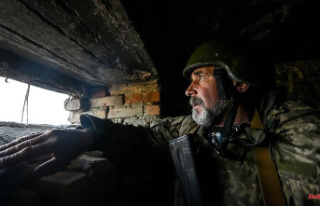Schleswig-Holstein's Prime Minister Günther wants to talk to the Greens about a black-green coalition. The FDP would also like to have been asked, but has to be patient for now. Just like in Düsseldorf, the talks in Kiel will start on Tuesday.
After the state elections, the CDU in Schleswig-Holstein is backing an alliance with the Greens. As Prime Minister and CDU state leader Daniel Günther announced on Monday after a state executive meeting in Kiel, the CDU invites the Greens to explore a coalition of two. According to Günther, the first interview should take place as early as tomorrow, Tuesday. The CDU is of the opinion that an alliance with the Greens can solve the future challenges in the country well.
The CDU emerged from the state elections on May 8 with 43.4 percent as the strongest force. Günther's party missed the absolute majority in the state parliament by just one seat. Black-Green would have a two-thirds majority in the state parliament, which is even enough for constitutional changes. The Greens had also increased significantly in the election with 18.3 percent. Nevertheless, Günther initially relied on a tripartite alliance with the Greens and the FDP. In this constellation, the three parties had already governed together in the previous legislative period since 2017.
However, the Greens rejected this plan last week after initial exploratory talks. According to their own statements, they saw no permanently stable basis for a new Jamaican coalition under the changed majority situation.
After the Jamaica option failed, the CDU announced that it would decide between the Greens and the FDP in the evening. Both parties have been courting the CDU again in the past few days and have offered themselves as government partners. FDP country chief Heiner Garg emphasized the "substantive intersections" between Liberals and Christian Democrats. Greens' top candidate Monika Heinold explained that the Greens wanted to "shape the future" with the CDU.
One of the experiences of the joint government years in Kiel is that the CDU and the Greens are now much closer in terms of content in many areas than in the past. It is not yet clear where discussions could become difficult. At least in the area of internal security, however, there is likely to be an increased need for negotiations. The Greens recently highlighted climate change and social justice as important issues.
In North Rhine-Westphalia, too, the signs are pointing to black and green. A good week after the state elections, the exploratory talks also begin on Tuesday in Düsseldorf. As in Schleswig-Holstein, the Greens and the CDU of the incumbent Prime Minister Hendrik Wüst had made clear gains in North Rhine-Westphalia. As early as next Sunday, the bodies of the two state parties want to decide on the start of coalition negotiations in the most populous state.












